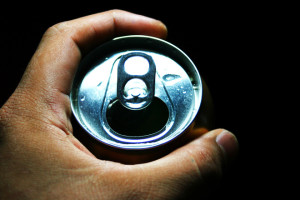 According to an article in the MetroWest Daily News, a Walpole man was recently charged with his fifth drunken driving offense. The article states that the defendant was riding in the passenger seat of his car, which his girlfriend was driving. According to the girlfriend, the defendant was intoxicated and threw a cellular telephone at her. The phone did not hit the girlfriend, but when she pulled over to pick it up, the defendant reportedly hit the her in the face with his hand. The girlfriend then drove to a nearby pizza shop in Ashland to try and get help. When she exited the vehicle, the defendant reportedly grabbed her and tried to pull her back into the car. He then got into the driver’s seat and drove away from her, but hit a parked car as he left. The police stopped the defendant a short distance away, still in the vehicle. The police asked the defendant if he had been drinking, and he stated that he had not. The police also asked if he would be willing to perform field sobriety tests, which he declined to do. According to the article, the police found empty beer cans and nips in the car. When the police ran the defendant’s record, they saw that he had four prior convictions for operating under the influence of liquor. He was subsequently charged with the following offenses: (1) driving under the influence of liquor (fifth offense)); (2) driving to endanger; (3) driving with a license suspended for drunken driving while intoxicated; (4) leaving the scene of an accident; and (5) domestic assault and battery.
According to an article in the MetroWest Daily News, a Walpole man was recently charged with his fifth drunken driving offense. The article states that the defendant was riding in the passenger seat of his car, which his girlfriend was driving. According to the girlfriend, the defendant was intoxicated and threw a cellular telephone at her. The phone did not hit the girlfriend, but when she pulled over to pick it up, the defendant reportedly hit the her in the face with his hand. The girlfriend then drove to a nearby pizza shop in Ashland to try and get help. When she exited the vehicle, the defendant reportedly grabbed her and tried to pull her back into the car. He then got into the driver’s seat and drove away from her, but hit a parked car as he left. The police stopped the defendant a short distance away, still in the vehicle. The police asked the defendant if he had been drinking, and he stated that he had not. The police also asked if he would be willing to perform field sobriety tests, which he declined to do. According to the article, the police found empty beer cans and nips in the car. When the police ran the defendant’s record, they saw that he had four prior convictions for operating under the influence of liquor. He was subsequently charged with the following offenses: (1) driving under the influence of liquor (fifth offense)); (2) driving to endanger; (3) driving with a license suspended for drunken driving while intoxicated; (4) leaving the scene of an accident; and (5) domestic assault and battery.
Fortunately for the defendant, he appears to at least of have a strong defense as to the most serious charge: driving under the influence of liquor, 5th offense. To obtain a conviction for this offense under G. L. c. 90, § 24, the Commonwealth would have to prove the following beyond a reasonable doubt: (1) that the defendant operated a motor vehicle; (2) that the defendant did so on a public way or in a place where the public has a right of access or in a place where members of the public have access as invitees or licensees; (3) that while operating the vehicle, the defendant was under the influence of intoxicating liquor; and (4) that the defendant was convicted of this offense on four prior occasions. Continue reading →
 Massachusetts Criminal Lawyer Blog
Massachusetts Criminal Lawyer Blog





 The Supreme Judicial Court recently issued an important decision about the admissibility of opinion evidence in
The Supreme Judicial Court recently issued an important decision about the admissibility of opinion evidence in  According to the
According to the  A 55 year old Northborough man was arrested on Wednesday night, April 17th after allegedly getting into a car accident on Route 9, according to an
A 55 year old Northborough man was arrested on Wednesday night, April 17th after allegedly getting into a car accident on Route 9, according to an  A 32-year-old Southborough man, was charged with assault and battery on a police officer,
A 32-year-old Southborough man, was charged with assault and battery on a police officer,  A Sudbury man, who police have not yet identified, allegedly drove his car into Willis Pond on Thursday, January 24th, according to an
A Sudbury man, who police have not yet identified, allegedly drove his car into Willis Pond on Thursday, January 24th, according to an